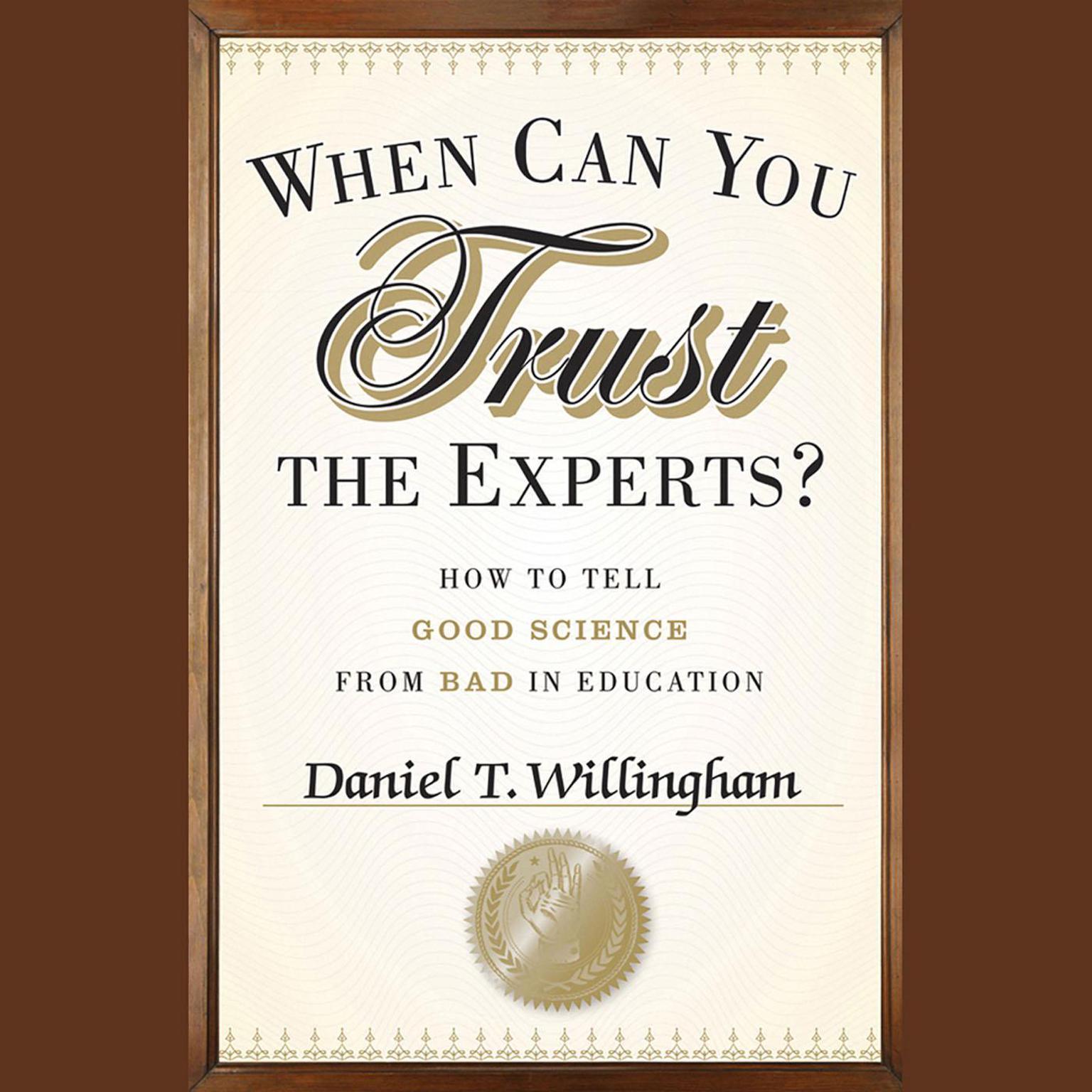 Play Audiobook Sample
Play Audiobook Sample
When Can You Trust the Experts?: How to Tell Good Science from Bad in Education Audiobook
 Play Audiobook Sample
Play Audiobook Sample
Quick Stats About this Audiobook
Total Audiobook Chapters:
Longest Chapter Length:
Shortest Chapter Length:
Average Chapter Length:
Audiobooks by this Author:
Publisher Description
Each year, teachers, administrators, and parents face a barrage of new education software, games, workbooks, and professional development programs purporting to be based on the latest research. While some of these products are indeed based on solid science, the truth is that the research underlying many others is grossly exaggerated. How can everyday teachers, administrators, and family memberswho dont have years of statistics courses under their beltsseparate the wheat from the chaff and determine which new piece of research is worth adopting? When Can You Trust the Experts? solves this knowledge gap for educators and parents by stressing clear, easy principles that differentiate reliable research from junk science. ** CONTENTS ** Introduction: What Are You To Believe? PART ONE: WHY WE SO EASILY BELIEVE BAD SCIENCE 1 Why Smart People Believe Dumb Things 2 Science and Belief: A Nervous Romance 3 What Scientists Call Good Science 4 How to Use Science PART TWO: THE SHORT CUT SOLUTION: FOUR STEPS TO EVALUATING NEW SCIENCE 5 Step One: Strip It and Flip It 6 Step Two: Trace It 7 Step Three: Analyze It 8 Step Four: Should I Do It?
Download and start listening now!
When Can You Trust the Experts? Listener Reviews
Be the first to write a review about this audiobook!
About Daniel T. Willingham
Daniel T. Willingham is a professor of psychology at the University of Virginia, where he has taught since 1992, conducting research on the applications of cognitive science to K–12 education. He earned his BA in psychology from Duke University and his PhD from Harvard University. Willingham writes the popular “Ask the Cognitive Scientist” column for American Educator magazine.






